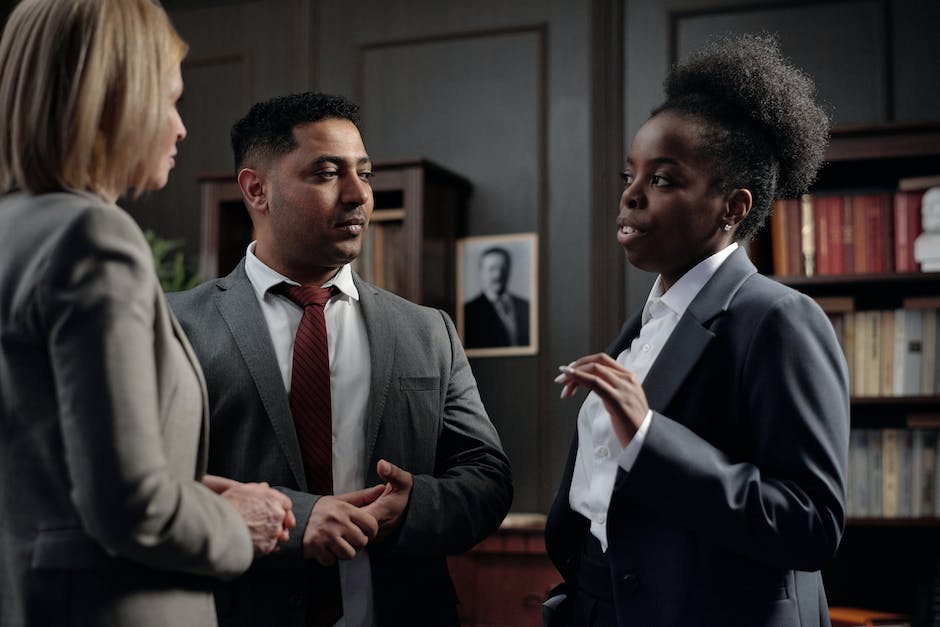Welcome to our comprehensive step-by-step guide on navigating a free divorce and obtaining the necessary legal help at no cost. We understand that going through a divorce can be emotionally and financially challenging, and finding assistance is crucial. In this article, we will provide you with valuable information, resources, and strategies to help you successfully navigate the divorce process without breaking the bank. Whether you're considering filing for divorce or are already in the midst of the proceedings, this guide will equip you with the knowledge you need to protect your rights and achieve a favorable outcome.
Looking for a step-by-step guide on how to get a free divorce. Our guide can help you discover the ways to obtain no-cost legal help.
Understanding The Divorce Process
A divorce is a legal process that dissolves a marriage, allowing spouses to legally terminate their marital union. It involves various legal procedures, such as filing the necessary paperwork, negotiating the division of assets and debts, determining child custody and support arrangements (if applicable), and finalizing the dissolution of the marriage through a court order.
Grounds For Divorce
Before initiating the divorce process, it's essential to understand the grounds for divorce in your jurisdiction. Different states or countries have varying requirements for granting a divorce. Common grounds for divorce include:
-
Irreconcilable differences
-
Adultery
-
Abuse or domestic violence
-
Desertion or abandonment
-
Substance abuse
-
Incarceration
-
Incompatibility
-
Mental health issues
Steps To Obtain No-Cost Legal Help
If you are wondering how to get a free divorce, following these steps can help you find free legal aid:
Step 1: Research Local Resources
Begin by researching local resources that offer free legal assistance for divorce cases. Many organizations, such as legal aid societies, pro bono clinics, and nonprofit agencies, provide services to individuals who cannot afford traditional legal representation. These resources often have experienced attorneys who volunteer their time to help individuals navigate the divorce process.
Step 2: Schedule Consultations
Once you have identified potential resources, schedule consultations to discuss your case with the legal professionals. During these consultations, provide detailed information about your situation and seek their advice on the best course of action. Be prepared to ask questions and clarify any concerns you may have regarding the divorce process.
Step 3: Determine Eligibility
Legal aid organizations typically have eligibility requirements based on income and other factors. They may prioritize individuals with low-income or those who are victims of domestic violence. Ensure you meet the eligibility criteria for free legal assistance, as it may vary depending on the organization.
Step 4: Gather Necessary Documentation
To effectively navigate the divorce process, gather all the necessary documentation related to your marriage, assets, debts, and children. This includes marriage certificates, financial records, bank statements, tax returns, and any existing court orders, among other documents. Organizing your paperwork will help streamline the legal proceedings and provide a solid foundation for your case.
Step 5: Work with Your Legal Representative
Once you have obtained legal representation, work closely with your attorney or legal aid representative. They will guide you through each step of the divorce process, including filing the paperwork, negotiating settlements, and representing you in court, if required. Stay in regular communication with your legal representative and provide them with any additional information or updates related to your case.
Additional Tips And Resources
-
Mediation Services: Mediation can be a cost-effective alternative to traditional litigation. It involves a neutral third party facilitating negotiations between you and your spouse to reach mutually agreeable solutions.
-
Self-Help Centers: Some courts have self-help centers where you can access legal forms, informational resources, and guidance on representing yourself in divorce proceedings.
-
Online Legal Resources: Numerous online platforms provide free or low-cost legal information and document preparation services. However, exercise caution when using such resources and consult with a legal professional to ensure accuracy and validity.
-
Community Support Groups: Seek out local support groups or counseling services to help you cope with the emotional aspects of divorce. Sharing experiences and receiving guidance from others who have gone through similar situations can provide significant support during this challenging time.
Additional Resources For Free Divorce Assistance
For free divorce assistance, many options are available to couples, from pro bono clinics and court-sponsored programs to online legal aid platforms:
Pro Bono Legal Clinics
Pro bono legal clinics are an excellent resource for individuals seeking free divorce assistance. These clinics, often organized by local bar associations, connect individuals with volunteer attorneys who provide legal advice and representation at no cost. Pro bono attorneys are committed to helping those who cannot afford legal services and can provide valuable guidance throughout the divorce process.
Court-Sponsored Programs
Many courts offer programs designed to assist individuals with limited financial means in navigating the divorce process. These programs may include free or reduced-cost legal services, mediation services, or self-help centers where you can access legal forms and guidance. Check with your local courthouse to inquire about any court-sponsored programs that can provide support and resources for your divorce case.
Online Legal Aid Platforms
In today's digital age, several online platforms offer free or low-cost legal aid services. These platforms provide resources, information, and even access to legal professionals who can assist you with your divorce case. It's important to research reputable online platforms and ensure that the services they offer align with your specific needs.
Frequently Asked Questions
To provide more clarity on how to get a free divorce, we have addressed some of the more pertinent questions people usually ask.
Can I get a free divorce if I have children?
Yes, it is possible to obtain a free divorce even if you have children. Many legal aid organizations prioritize cases involving children and provide assistance in matters such as child custody, visitation rights, and child support. Consult with local resources to explore the options available in your jurisdiction.
How long does the free divorce process usually take?
The duration of the free divorce process can vary depending on various factors, such as the complexity of the case, court availability, and the cooperation of the parties involved. It's best to consult with a legal professional or the organization providing free legal assistance to get a better understanding of the estimated timeline for your specific situation.
Can I receive free legal assistance if my spouse has hired an attorney?
Yes, even if your spouse has hired an attorney, you may still be eligible for free legal assistance. Legal aid organizations are designed to provide support to individuals who cannot afford their own representation, regardless of whether the other party has legal counsel. Contact local resources to determine your eligibility and explore the options available to you.
Get Free Legal Aid For Your Divorce
Navigating a free divorce and obtaining no-cost legal help is possible with the right knowledge and resources. By following the steps outlined in this comprehensive guide on how to get a free divorce, you can take proactive measures to protect your rights and achieve a favorable outcome in your divorce proceedings. Remember, although this article provides valuable information, consulting with a qualified legal professional is essential to ensure your specific circumstances are properly addressed. Divorce can be a complex process, but with the right support and guidance, you can successfully navigate it and move forward to a brighter future.
Finding legal aid even if you are facing financial hardships is possible. Learn more about hiring a molestation lawyer by visiting Gov-Relations.com and learn more about your legal rights and options.






